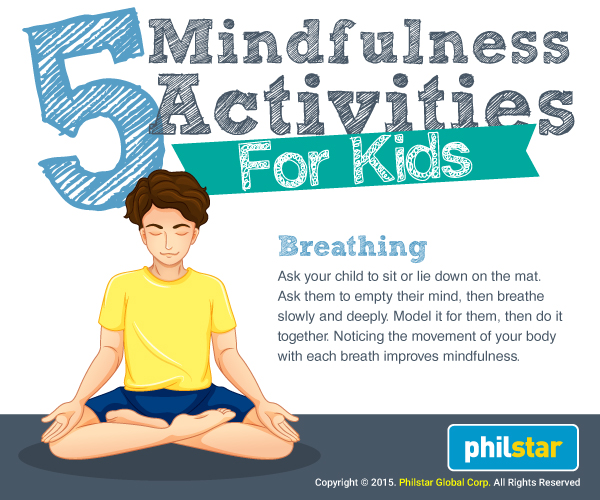Mindfulness Exercise 1: Breathing
MANILA, Philippines — Mindfulness is a way of being that both adults and children can practice. It may sound complicated, but it really just means awareness. It is the practice of noticing things in the moment, especially those overlooked, such as one’s breathing, feelings, thoughts or actions.
Mindfulness has a lot of benefits that can aid your child's development. Aside from decreasing their stress and aggression, it can positively affect their academic learning as well. This is why teaching mindfulness to your children is important.
In lieu with this, Dr. Honey Carandang has suggested some activities to practice mindfulness. Children can do these five techniques for 5 to 10 minutes a day at different times: before school, before homework, or before bedtime.
It can be scheduled and regimented if structure helps your child, or it can be changed—to keep the novelty and fun of it—but maintained on a flexible daily schedule.
Before doing the activities, designate a "breathing space" at home where you can perform them. Create a relaxing setting by lighting a scented candle, changing the lighting to a dimmer shade and placing a special mat to create a comfortable space. The only rule is that the person’s mood and right to be quiet are respected.
The first activity toward teaching mindfulness to your children is breathing. Breathing is the most natural means of supplying oxygen to our body, which is essential for our survival. It also helps eliminate waste products and toxins from the body.
But there is so much more to breathing than simply being a process that your body does naturally. Focus on your breath and connect to it. Become aware of it and enjoy it effortlessly.
The proper way of doing breathing is shown on the infographic below:

Here's a playlist that can go along with your breathing exercise.
Mobile users may switch to Desktop Mode to listen to the playlist.



















